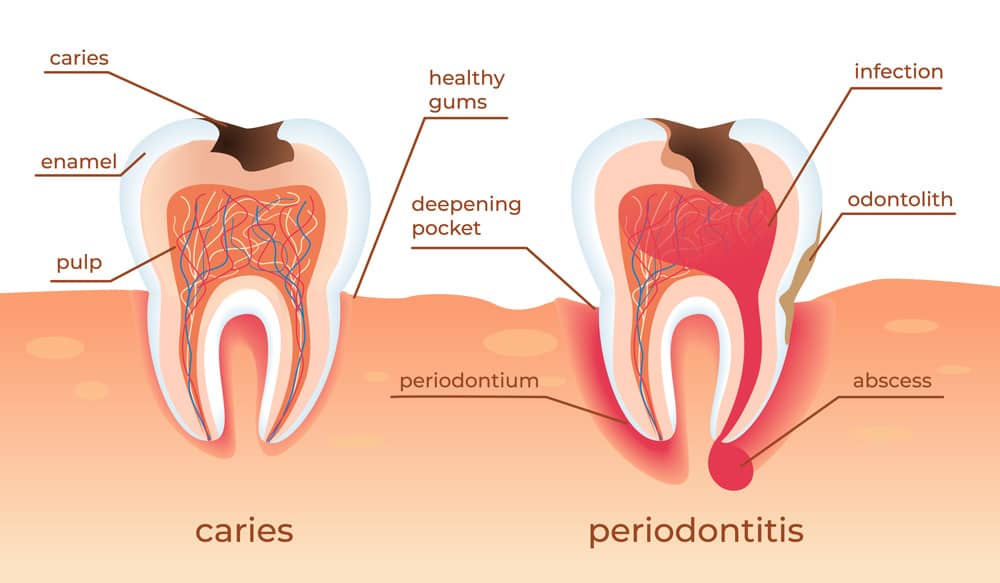 Periodontal disease, also known as gum disease, is a very serious health condition that can only be diagnosed by your dentist. Learning about this disease, the warning signs, and its treatment is essential for anyone concerned about their oral health.
Periodontal disease, also known as gum disease, is a very serious health condition that can only be diagnosed by your dentist. Learning about this disease, the warning signs, and its treatment is essential for anyone concerned about their oral health.
What is Periodontal Disease?
Periodontal disease is inflammation and infection that affects the gums surrounding your teeth, causing them to pull away from the teeth, which can lead to permanent damage of the bones and tissues in the mouth if left untreated. Severe gum disease can lead to tooth loss, so it’s imperative that it’s treated in the early stages.
Who is Most Susceptible to Gum Disease?
People that suffer from chronic illnesses like diabetes and heart disease are more likely to develop gum disease than those that don’t, as well as people that suffer from stress-related disorders like anxiety. Oral hygiene is essential when you have an underlying medical issue.
How is Gum Disease Treated?
Once you’ve been diagnosed with Periodontal disease, your dentist will develop your treatment plan depending on the severity of your particular case. When caught in the very early stages, a periodontal cleaning may be all you need to begin the healing process. For more progressed cases, scaling and root planing, types of deep periodontal cleaning methods, will be performed by your dentist. In extreme cases of gum disease, periodontal surgery may be necessary. During surgery, your dentist or periodontist is able to remove plaque and tartar from deep within the periodontal pockets. Afterward, your gums are stitched up, reducing the depth of your periodontal pockets which makes it easier to keep your teeth clean and healthy.
More questions about periodontal disease? To speak to Dr. Zola Makrauer or Dr. Julie Miller about your gum disease and treatment, call Huntingdon Valley Dental Arts today. The sooner you address your periodontal disease, the sooner you can begin the healing process.
